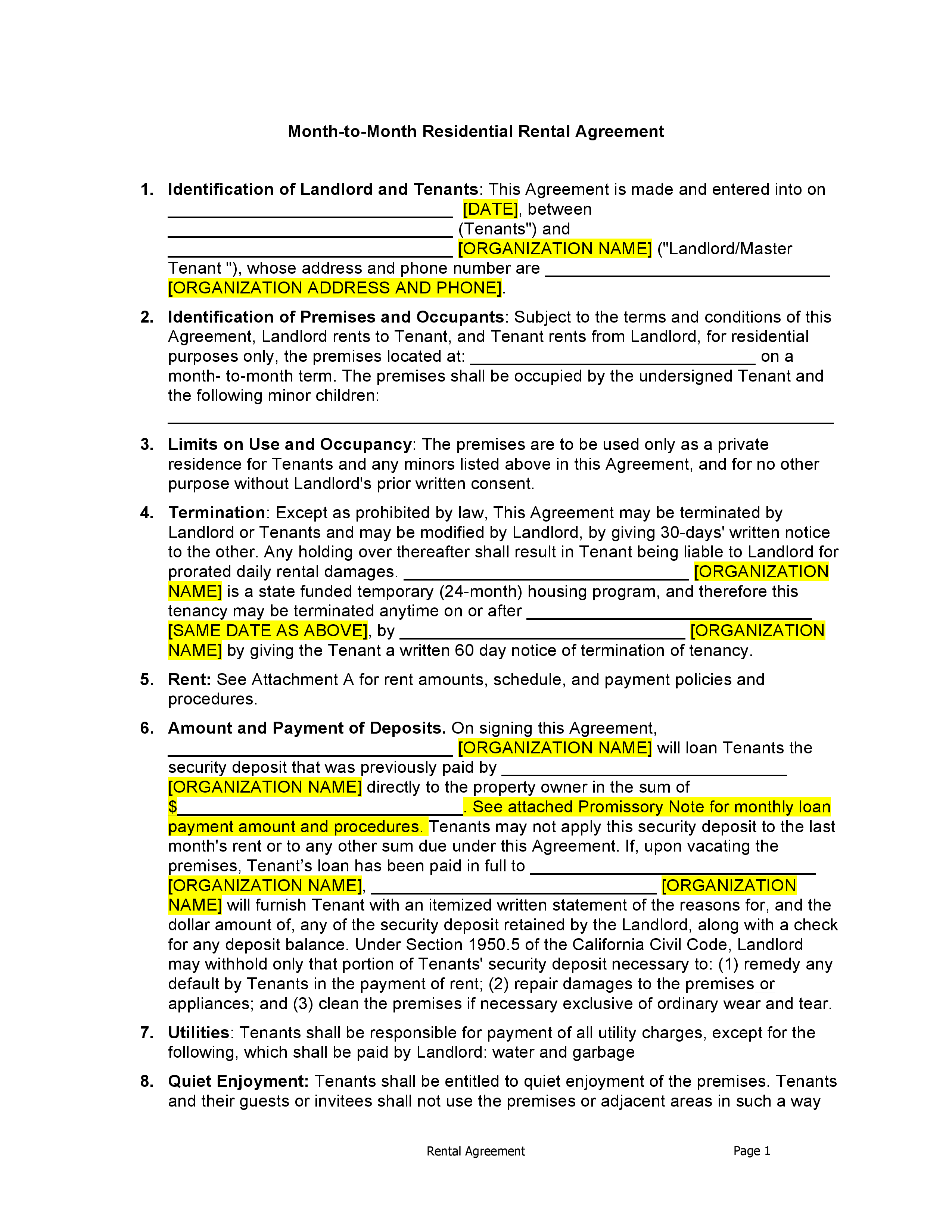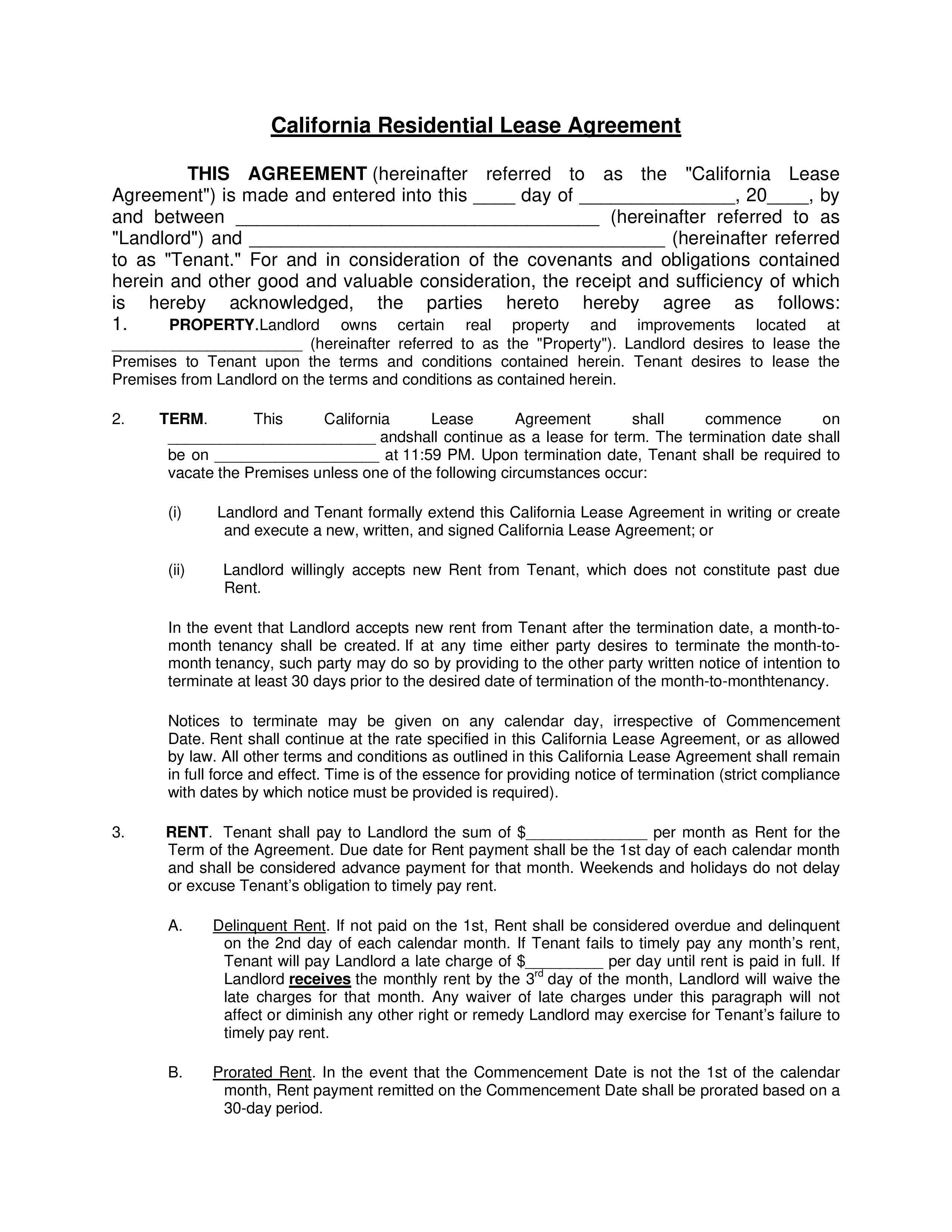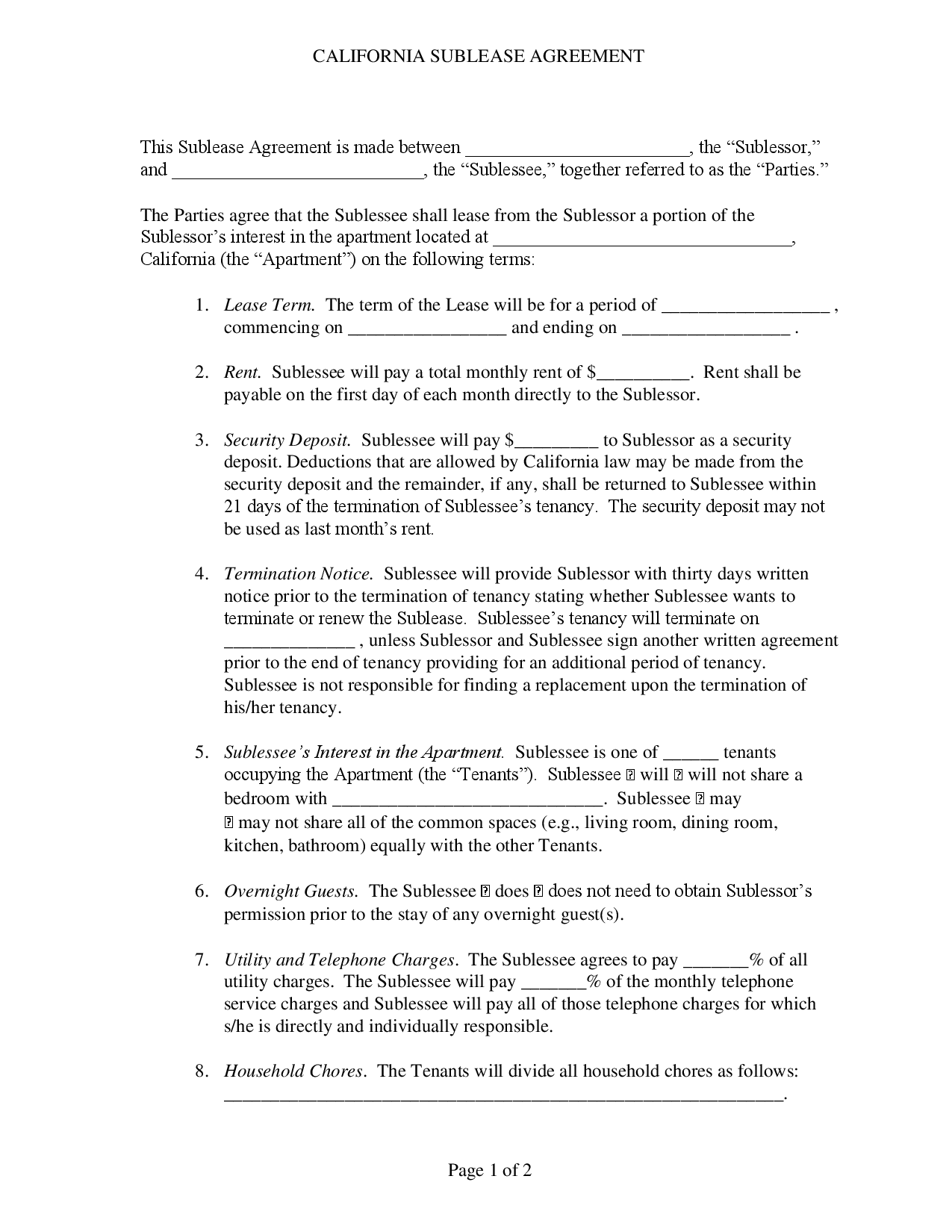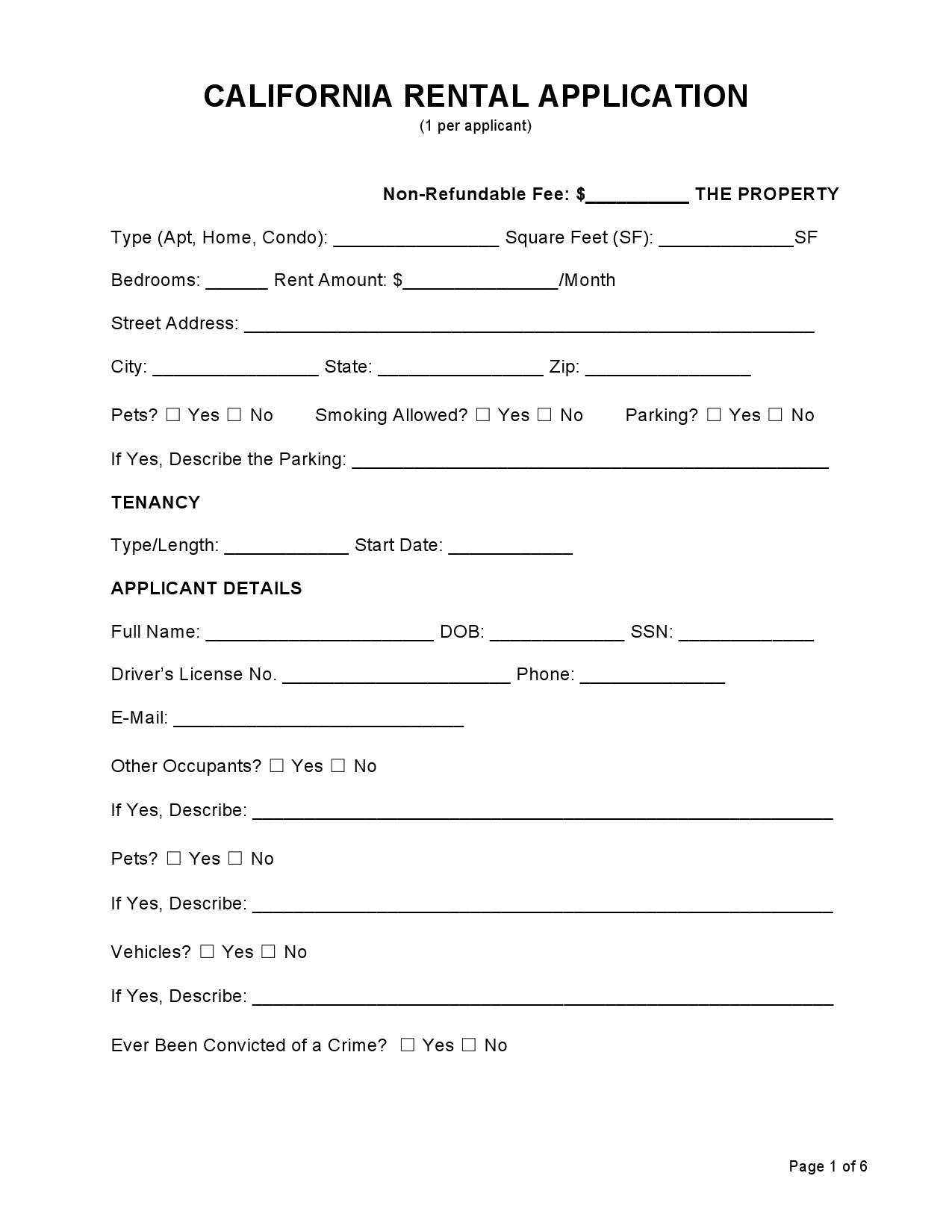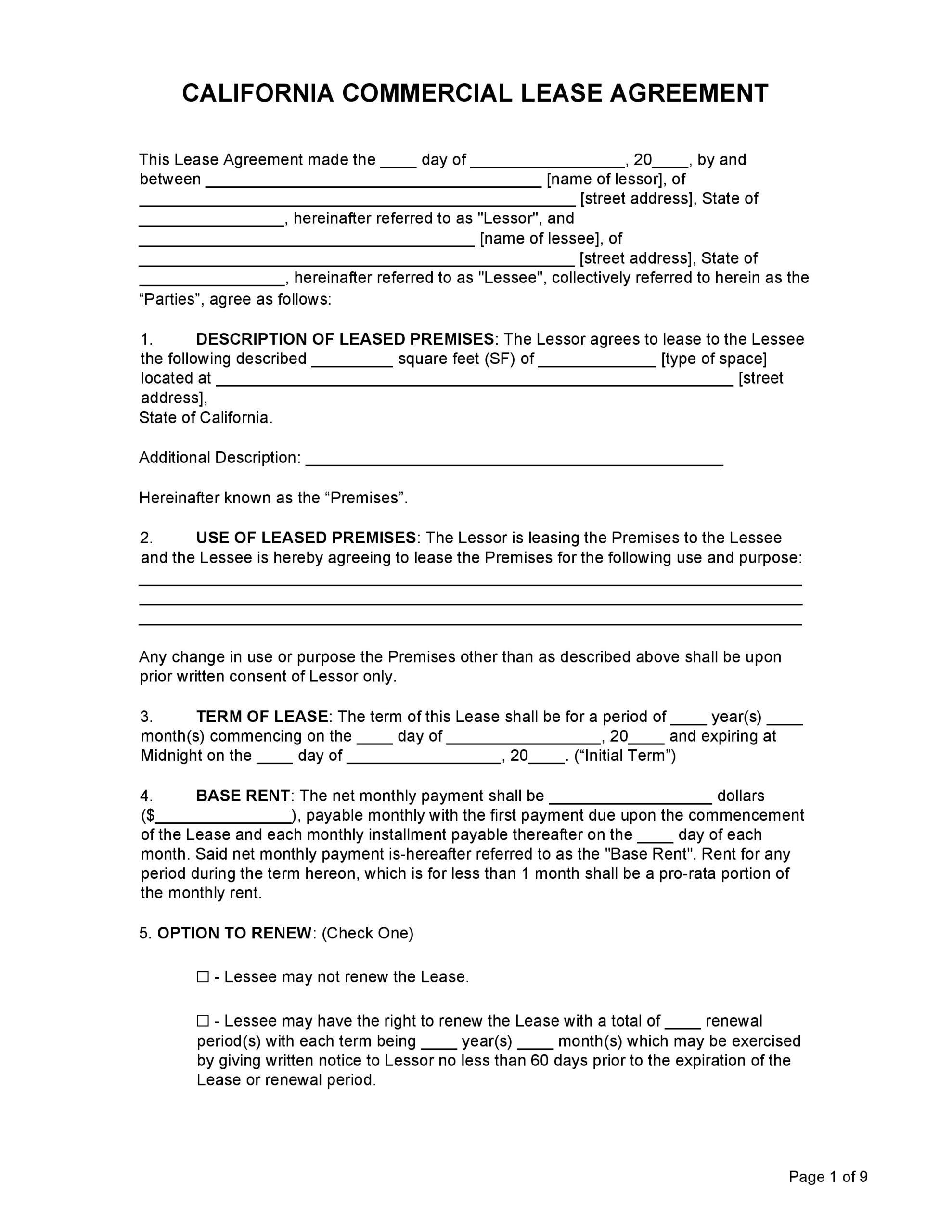Free California Rental Lease Forms
The California rental lease is a formal tenant and landlord agreement. After a tenant goes through a review process and gets approved, they commit to paying the landlord for the use of their property. There are distinct agreements tailored to various rental needs. By signing the lease, both parties pledge to honor its terms.
(5) Free California Rental Lease Forms to Download
California Standard Residential Lease Agreement
California Sublease Agreement
Rental Application California
Commercial Lease Agreement California
Landlord-Tenant Laws
- California Civil Code: Division 2 (Property) and Division 3 (Obligations)
- California Tenants: A Guide to Residential Tenants’ and Landlords’ Rights and Responsibilities (PDF)
Security Deposits
Rent
Required disclosures
- AB 1482 Just Cause Addendum: This ensures no restrictions on rent hikes or evictions (CIV 1946.2(e) & 1947.12(d)(5)(B)(i)). Some exceptions apply.
- Lead-Based Hazards: For buildings erected before 1978, landlords must notify tenants about potential lead risks (Title 42 U.S. Code § 4852(d)).
- Bedbug and Flood Disclosures: Landlords must declare units free from bedbugs and inform if units lie in flood zones.
- Demolition and Megan’s Law Disclosures: Tenants should be informed about demolition permits and directed to websites showing local registered sexual offenders.
- Shared Utilities, Smoking Policy, Mold, Ordinance Locations, and Pest Control: These disclosures ensure tenants know utility agreements, smoking rules, mold risks, former ordinance locations, and recent pest treatments.
You can read more about Required Landlord – Tenant Disclosures in a Rental Lease Agreement
California Eviction
Landlord’s Access/Right to enter
Frequently Asked Questions
Can you negotiate rent in California?
Yes. You can always negotiate rent before signing a new rental lease or renewing your rental lease.
Yes. You can always negotiate rent before signing a new rental lease or renewing your rental lease.
Does a rental agreement need to be notarized in California?
No. It is not mandatory to Notarize a lease agreement in California.
No. It is not mandatory to Notarize a lease agreement in California.
Can tenant make a move against landlords?
Yes. California landlords are required to offer habitable rentals, thus, tenants can sue the landlord, move without notice, call the state health inspectors, repair and deduct rent or withhold rent if the landlord fails to take care of the premises as required.
Yes. California landlords are required to offer habitable rentals, thus, tenants can sue the landlord, move without notice, call the state health inspectors, repair and deduct rent or withhold rent if the landlord fails to take care of the premises as required.
Can a tenant legally break a lease?
Yes. California State gives the tenant the right to break a lease under some circumstances such as income disruption, job loss or transfers. However, liability for the lease still remains.
Yes. California State gives the tenant the right to break a lease under some circumstances such as income disruption, job loss or transfers. However, liability for the lease still remains.
What happens when a lease expires?
The landlord requires the tenant to return the premises back upon expiration of the lease according to their agreement unless there is an agreement renewal between the landlord and the tenant.
The landlord requires the tenant to return the premises back upon expiration of the lease according to their agreement unless there is an agreement renewal between the landlord and the tenant.

